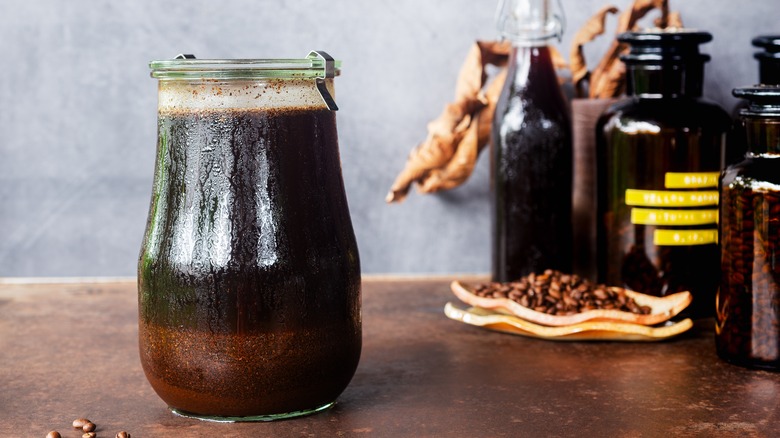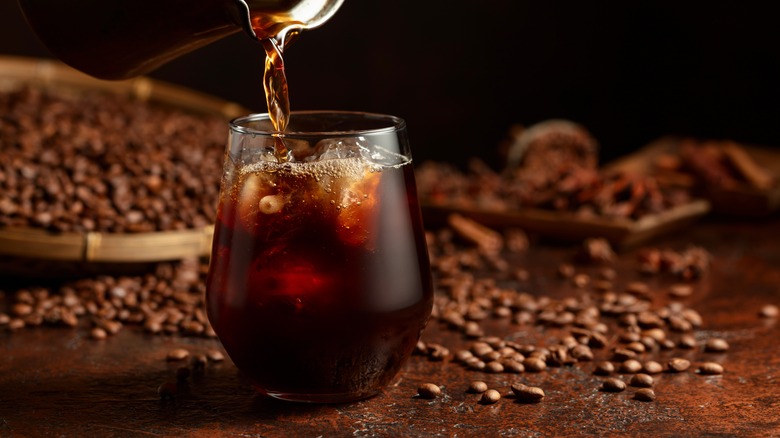What You Need To Know When Choosing A Filter For Your Homemade Cold Brew
We may receive a commission on purchases made from links.
Copper Moon Coffee, a family-owned roaster and coffee shop chain based in Lafayette, Indiana, likes to say that brewing coffee is not rocket science. Still, Taylor Young, the company's Quality Director and a certified American Chemical Society chemist, believes there are some important details you need to pay attention to. That includes selecting the right coffee filters for your homemade cold brew. "This depends on what you want your final product to taste like," Young told Chowhound exclusively.
Young prefers either paper or metal mesh filters. Paper filters, he says, remove fine coffee particles and oils. This produces a "cleaner, crisper cup that is often more muted." Paper filters help remove a lot of the solids in the grounds from the liquid. Metal mesh filters, on the other hand, produce a fuller-bodied brew since they allow in some of the oils. Other coffee brewers say that cheesecloth and other fiber filters will also let more solids and oils through, giving the end product more texture and weight. Home brew coffee makers, from the simple mason jar styles to the higher-end, more complex styles like the KitchenAid XL Cold Brew Coffee Maker, come equipped with metal filters.
Other things to consider when making homemade cold brew
Experts say other factors will impact the quality of your homemade cold brew. Other than selecting the right filter, one thing people get wrong when making cold brew is choosing a light roast. Medium to darker roasts are more soluble in water, making it easier to evenly extract the coffee flavor. In addition, lighter roasts tend to be more acidic than darker roasts. You also want to use either cold or room temperature water, coarsely ground, quality beans, and the correct water to coffee ratio for cold brew. Depending on how strong you like your coffee, use one cup of ground coffee for every four to six cups of water.
Whether you're making cold or hot brewed coffee, you should always wet your coffee filters first, particularly if you're using paper filters. Wetting your filters will help remove any particles of dust or off flavors from the paper, including the bleach used for white paper filters. It all may sound like a lot of steps, but when you take your first sip of the rich, slightly sweet cold brew, you'll know it was worth the trouble.

